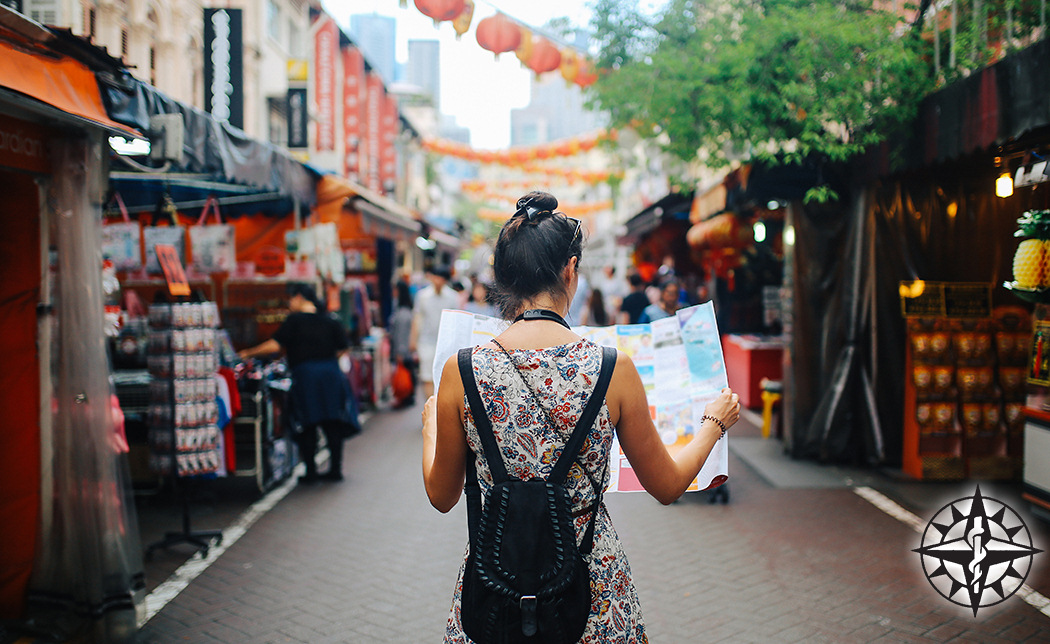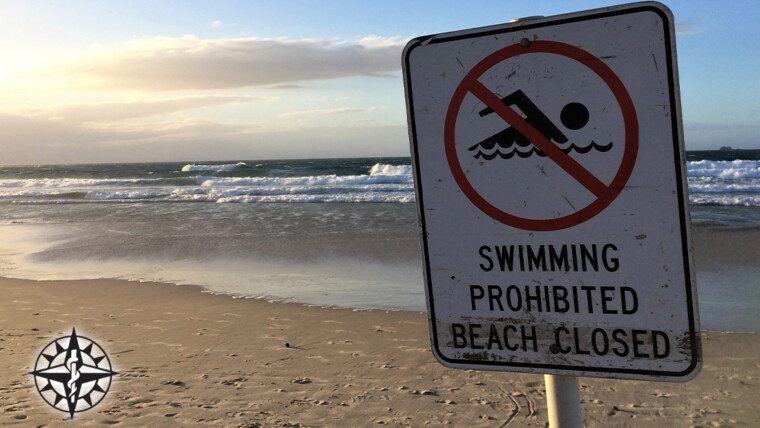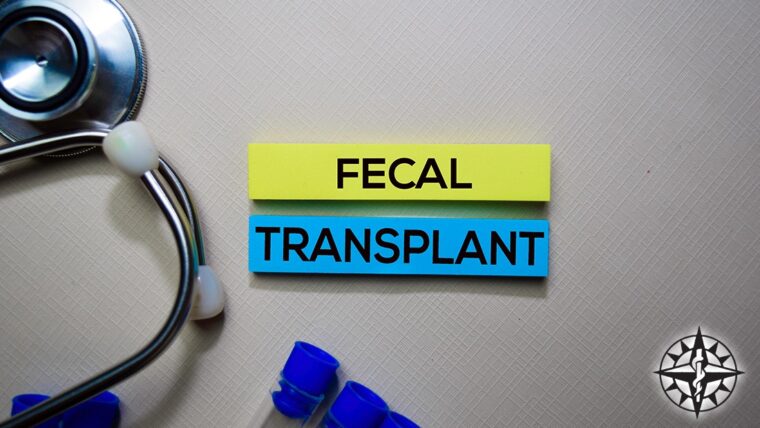Published on: July 15, 2020
Taking a trip abroad? There is so much to think about. You must plan your itinerary, book hotels, arrange transportation, sightseeing and so much more. But don’t forget to think about illness and diseases you may be exposed to in your travels. This is something many of us do not think about but without proper precautions you might come home not feeling well or worse seriously ill. With proper planning and travel advice you can learn what precautions to take when traveling to the areas you plan to visit.
The field of travel medicine is only about 20 years old and now is even a specialty. Martin Wolfe, M.D, director of Travelers’s Medical Service is probably the person who spearheaded the travel medicine movement. He has run a health clinic in Washington D.C. for the last 30 years and focuses on providing travel medicine for government officials. Travel medicine has now grown to the point where medical conferences are held just to focus on this topic.
Travel clinics are becoming more widely available to the public and provide advice on preventing illness while abroad. It is an essential first stop for travelers before they embark for their destinations.
What a Travel Clinic Provides
A travel clinic can provide you with an array of services. You will have an assessment of your overall health, a review of your destination(s) and activities while there, a discussion about what infections you could be exposed to in the areas you are visiting and advice on avoidance of risks and recommendations on required and recommended vaccination.
Taking time to visit a travel clinic is an opportunity to update any vaccines that may be required to enter a country and to discuss recommended vaccines to prevent other infections you may be exposed to. Vaccines could include those for the prevention of typhoid fever, yellow fever, varicella / zoster (chickenpox and shingles), and plenty more. You can also receive information on topics such as safe food and water and how to avoid illnesses transmitted by mosquitoes and other insects. When returning home, you will have access to a prompt reevaluation and treatment if needed if you are not feeling well.
When visiting the clinic, it is important to bring your immunization records and an itinerary so you can be given detailed information tailored to your needs. It is also important to bring a list of your current medications and any health conditions.
How to Schedule an Appointment
It is not difficult to find a seat at a traveler’s clinic before your scheduled departure. The process is easy and simple, you merely have to set aside some time to meet with them. So, there’s no excuse not to protect yourself and the others you may be traveling with, visiting, or coming home to.
Scheduling an appointment can be as simple as calling your local clinic or filling out an online form. It may take a week or two to get an appointment depending on the season you are trying to travel abroad in and the clinic schedule. It is recommended that you allow at least 2 weeks before travel to receive your vaccines, so planning is key!
Prevention is Only the First Step
After visiting the travel clinic, learning about your planned destination and perhaps receiving immunizations, it may be a common misconception that you’ve been immunized to all potential danger. A visit to the travel clinic before and after your trip is always a wise choice, but it’s crucial to keep in mind that to ensure your health and wellbeing, you must be vigilant.
When visiting crowded spaces such as a market, museum, tourist destination or city street, stay aware of your surroundings and be mindful with hygiene. You may infect others around you just as much as they may infect you! Especially in countries where vaccines may be less available to poorer or more remote regions, simply sneezing or coughing without covering your face, or touching things without washing your hands, may make vulnerable people very ill.
Another point of risk may be the local tap water. Check your destination’s sanitation and water purification laws. If the location has a history of leaving travelers sick with diarrhea or waterborne illness, then it may be wise to stick with bottled water, or at least purifying the tap with a range of water purification products available on the market. View this guide for more information on safe water purification methods.
Food and other liquids should be considered carefully as well. Buying local street food can be an extremely rewarding (and delicious!) experience, as many countries offer unique dishes which can’t be found almost anywhere in the world, and local vendors are sometimes considered the “hidden gems” of the destination’s gastronomic landscape. In fact, sometimes street food can be safer than restaurant offerings!
For starters, keep an eye on whether locals are lining up to eat there, and when. If you enter a restaurant and it’s nearly empty, or only filled with tourists, it may be wise to go elsewhere. A similar judgement can apply to street food: if there’s a long line, that can almost guarantee the wait will be worth it. Also be wary of allergens, as language barriers or misunderstandings can lead to truly tragic consequences if you have a particularly severe allergy. Keep an eye on whether you’re able to watch them prepare your food, and how they handle your money. If the kitchen is not transparent, it may be best to search elsewhere.
Finally, be extremely wary of coming into contact with the blood or bodily fluids of others. Though most travelers do not travel to a destination with such interactions in mind, sexual contact with locals can transmit HIV, Syphilis, Hepatitis, or any other STIs, especially if those locals are doing so in exchange for money.
The so-called “sex tourism” industry is worth billions of dollars across the world, with multiple countries famed for appealing to this market. It can be highly dangerous to engage in travel for this purpose, not only due to the very real risk of acquiring deadly and embarrassing diseases, but also the legal or even criminal ramifications involved in countries where prostitution is illegal or controlled by organized crime. It may be wise to question whether engaging in such activity is worth your future health, safety, or personal connections.
Common Destinations That Warrant a Trip to a Traveler’s Clinic
These are just some examples of countries that may present an increased risk to travelers for contracting diseases they may be unaccustomed to fighting off. It is important to research if there are any health advisories in relation to where you are going so you can be sure to see a clinic beforehand.
- India
- Typhoid, Hepatitis A, diarrhea
- Kenya
- Malaria, dengue, typhoid, diarrhea, Hepatitis A
- Thailand
- Diarrhea
- Peru
- Dengue and Typhoid Fever
- Indonesia
- Hepatitis A
- Sri Lanka
- Dengue, Hepatitis A, diarrhea
- Dominican Republic
- Typhoid fever, Dengue, Hepatitis A, diarrhea
Travel Clinics in Tampa, St. Petersburg, and Orlando
Passport Health (Tampa)
Phone: (813) 969-3757
Address: 4204 W Linebaugh Ave, Tampa, FL 33624
Travel Clinics of America
Phone: (407) 677-4867
Address: 590 Ruby Ct, Maitland, FL 32751
International Travelers Clinic (IDATB)
Phone: (813) 251-8444
Address: 4729 N Habana Ave, Tampa, FL 33614
Passport Health (Clearwater)
Phone: (813) 969-3757
Address: 13575 58th St N Suite 108, Clearwater, FL 33760
Passport Health (Orlando)
Phone: (407) 902-9783
Address: 4301 Vineland Rd Suite E-5, Orlando, FL 32811
Infectious Disease Associates of Tampa Bay
Infectious Disease Associates of Tampa Bay is dedicated to providing the best care for the treatment and prevention of infectious diseases. We provide a full traveler’s clinic and can administer essential vaccines and write prescriptions for medications you may need on your travels abroad. If you have any questions or would like to schedule an appointment, please contact us at 813-251-8444.





